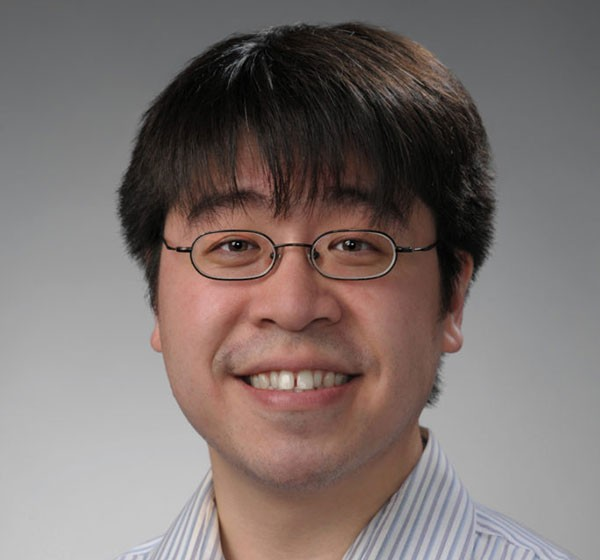Course Overview
Biomedical Engineering: Engineering the Human Machine is a summer STEM course that introduces high school students to the field of biomedical engineering and the application engineering principles at the interface of biology and medicine. Students will be acquainted with the fundamentals of biomedical engineering through lecture, workshops, experiments and virtual clinical immersion.
Clinical simulation depicts real-life clinical case situations to allows students to learn skills; develop clinical reasoning abilities; and to become familiar with the use of biomedical and clinical technology in a safe environment. Students will be exposed to clinical practices in different hospital departments, including but not limited to orthopedics, radiology, radiation oncology, rehabilitation, neurology, pathology, pediatrics, infectious disease, and surgery.
Mobile healthcare and telemedicine have become more prevalent, empowered by apps, sensors, wearables, augmented virtual reality, digital and information technology, and the cloud and the Internet of Things, consequently leading to unprecedented and multifactorial transformation in the healthcare landscape. Through hands-on sessions, students will learn about medical equipment, digital diagnostics, telemedicine, microcontrollers in medical applications, app development and computer-aided design. Students will purchase a set of microprocessor and electronics for
prototyping and testing.
All students who successfully complete the course will receive a Certificate of Completion and have the opportunity to request a Syracuse University noncredit transcript.
Learning Objectives
Upon successful course completion, students will:
- Obtain a broad exposure to different disciplines and careers in biomedical engineering
- Possess a greater appreciation for the breadth of studies in biomedical engineering
- Appreciate the urgency and importance of developing medical technology solutions to healthcare problems
- Appreciate the utility of medical technology in medicine
- Build a mathematical, physical, biological and chemical foundation in biomedical engineering
Course Information
Course Prefix and Number: SCN 072
Format: On Campus
Eligibility: Students must be of rising high school sophomore, junior, or senior status – or a 2025 high school graduate.
Students should have taken at least one year of biology and have interest in math, engineering, or health and life sciences.
Credit: Noncredit
Grading: Pass/Fail
- Residential: $4,295
- Commuter: $3,318
Program rates are subject to change and will be approved by the board of trustees. Discounts and scholarships are also available.
Program Information
Summer College – On Campus: Experience what college is really like: take a college-level course, live in a residence hall, have meals with friends in a dining hall, and participate in activities and events on campus.
Course Dates and Details
| Program | Course Dates | Class Time (Eastern Time) | Credit/Noncredit |
|---|---|---|---|
| Summer College – On Campus | 2-Week Session I: Sunday, July 6 – Friday, July 18, 2025 | MTWThF; 9 a.m. – 4 p.m. | Noncredit |
To see if this course is ‘open,’ refer to the full course catalog.
Course Requirements
Student Expectations
Students must:
- Attend to all academic requirements
- Be on time for all class sessions
- Be attentive and engaged.
- Complete all academic requirements
Typical Day
Tentative Schedule
Tentative Schedule TBD.
Faculty Bios
Douglas Yung – Associate Teaching Professor, Bioengineering, College of Engineering & Computer Science

Douglas Yung is an Associate Teaching Professor in the Department of Biomedical and Chemical Engineering at Syracuse University and serves as the Director for the Bioengineering undergraduate program. He completed his B.S. in electrical engineering and mathematics at UCLA in 2003 and later pursued a Ph.D. in bioengineering from Caltech in 2008. Following this, he spent time at the Jet Propulsion Laboratory in California as a NASA Postdoctoral Fellow, working on sensor development, microfluidics, and bacterial spore viability. In 2009, he joined the Department of Electronic Engineering at the Chinese University of Hong Kong as an Assistant Professor.
Prof. Yung is not just a distinguished academic but a visionary biomedical engineer. He is known for fostering expansive collaborations that bridge the gaps between academia, industry, hospitals, and communities on a grand scale. His intrigue lies at the intersection of microbes and engineering tools, particularly on a micro- and nano-scale. He is actively pioneering techniques to evaluate the resilience of superbugs and derive energy from extremophiles, merging electrochemical and optical techniques with MEMS devices. Over the past 12 years, he has championed more than 20 STEM outreach programs, impacting over 500 K-12 students. His contributions to education have been lauded with awards, including the College Educator of the Year by the Technology Alliance of Central New York (TACNY). A staunch advocate for hybrid teaching, Prof. Yung promotes a holistic learning environment rich in hands-on projects, experiential activities, and peer collaboration, a marked shift from conventional pedagogies.
